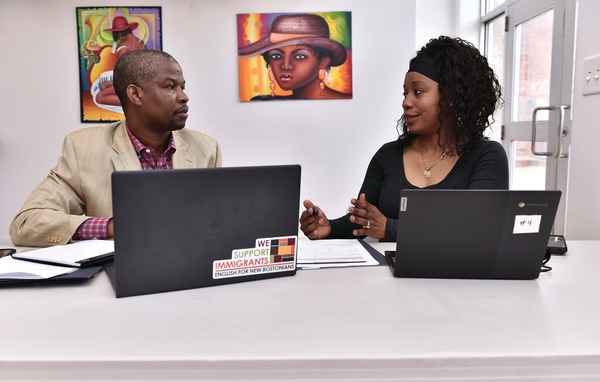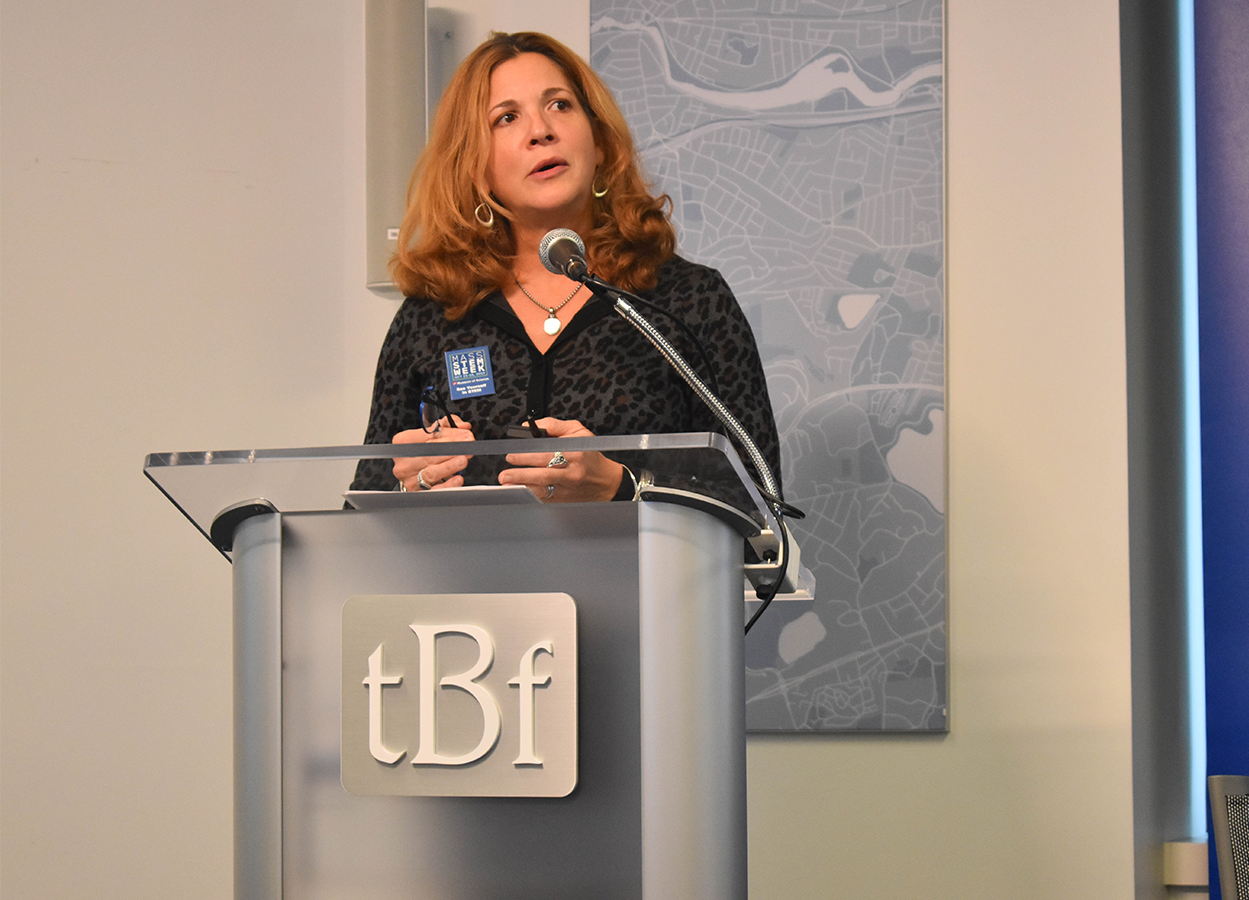The Great Equalizer
English for New Bostonians Celebrates 20 Years
TBF News Spring 2022
The Boston Foundation was founded more than 100 years ago in response to the huge influx of immigrants from Southern and Eastern Europe who were pouring into the city through the Port of Boston. The earliest grants supported the settlement houses and other groups that were helping newcomers with English language instruction, education and job training.
Those immigrants brought a new energy to the city and helped to transform our region—just as today’s immigrants are helping to power Greater Boston’s resurgence as a world-class city. In fact, if it weren’t for people moving to our city from other countries, Boston’s population would essentially be the same today as in 1980. But the true impact of immigration is not reflected by statistics. Newcomers have helped to boost the economic vigor and cultural vibrancy that makes Massachusetts so strong and Boston the envy of so many other cities.
The size of the Limited English Proficiency population in Greater Boston is roughly 320,000 and 75 percent of them are working-age adults. As immigrants account for an ever-increasing share of our workforce, the strength of our economy will depend on our ability to cultivate and draw upon the skills and talents of these newcomers. English for Speakers of Other Languages (ESOL), is a critical first step—the great equalizer when it comes to education and employment.
“English is the key to unlocking life here,” says Wilfrix Cherazard, who came to Boston in 2014 from Haiti and now works as a Career Coach for English for New Bostonians (ENB). In Haiti, he was a teacher, journalist and pastor. While a student at the Gilbert Albert Community Center, an ENB ESOL site, he became a student leader advocating for more English classes. He served on ENB’s Board for three years, working as a cook while attending Urban College to earn an associate’s degree in human services administration. ENB brought Cherazard and other career coaches on board as part of its vigorous push for economic recovery and mobility for immigrants. “ENB gives immigrants ‘The Key,’ ” Cherazard said, “and I am happy to help extend that key.”
English for New Bostonians was founded 20 years ago as a public-private-community collaborative by the Mayor’s Office for Immigrant Advancement and Office of Workforce Development to address the urgent need for ESOL classes for Boston’s burgeoning immigrant population. Today ENB works tirelessly to customize opportunities for immigrants to learn English, in partnership with public schools, employers and workers who provide input into the curricula.
ENB supports 23 specialized ESOL programs for parents, business owners and people looking for quality jobs. Executive Director Claudia Green is proud that ENB is always driving innovation. “ENB keeps our finger on market and tech trends, and makes sure teachers are well trained.” ENB also leads the statewide English Works Campaign promoting ESOL investment as imperative to a strong workforce. Throughout the pandemic, it has been the backbone of Boston’s ESOL system, elevating English training as part of a universal economic and educational equity agenda.
“The Boston Foundation stepped in early and brought other funders in,” adds Green about ENB’s founding in 2001. The Foundation remains a key supporter: President and CEO Lee Pelton will join an ENB Funder Briefing on July 14th as part of the organization’s 20th anniversary series. When asked about important partners In the public sector, Green says that the Commonwealth’s Secretary of Labor and Workforce Development, Rosalin Acosta, has been a powerful ally and voice for ESOL.
“For me, this topic is very personal,” says Acosta, explaining that her parents came here from Cuba when she was four. They had been university professors but ended up working in factories when they came to America because neither spoke English. “They eventually went back to work as teachers but it took 12 years for them to get there. Think about the disadvantages they experienced. By working to advance access to English language programs in Boston, English for New Bostonians is helping to ensure that our growing immigrant population can thrive. It has been providing crucial supportand services for the last two decades.”


